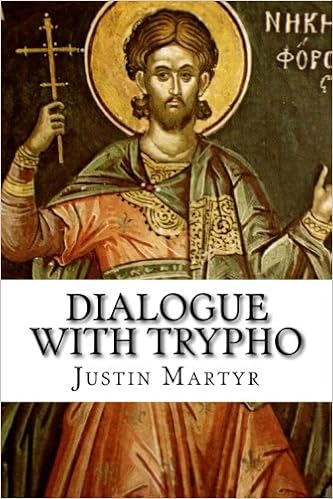One of the most surprising things about the work to me was the number of arguments that Justin makes from scripture with regard to the Messiah's identity. The number of typologies and prophecies that he pulls out and argues by is incredible. They are the same arguments generally made today by Christians. But it's interesting to me to see that these arguments were already formed in the second century, as if very little has been added since then. A translation may be read here.
Sunday, January 26, 2020
On "Dialogue with Trypho" by Justin Martyr ***
This second-century religious text does a good job of showing Martyr's background in the study of philosophy and some of the arguments for and against Jesus as Messiah in terms of Jewish versus Christian views. It's not likely to be the most engaging reading to someone not interested in the issues and how they played out at the time, and it's often quite repetitive. You also get a lot more of the Christian views than the Jewish, for obvious reasons. In fact, I'd say the work is to actually fairly antisemitic. Repeatedly, Justin claims that the Old Testament law was put upon the Jewish people because of their unique stubbornness and innate bad nature, as if somehow other peoples are superior to this particular set of peoples.
One of the most surprising things about the work to me was the number of arguments that Justin makes from scripture with regard to the Messiah's identity. The number of typologies and prophecies that he pulls out and argues by is incredible. They are the same arguments generally made today by Christians. But it's interesting to me to see that these arguments were already formed in the second century, as if very little has been added since then. A translation may be read here.
One of the most surprising things about the work to me was the number of arguments that Justin makes from scripture with regard to the Messiah's identity. The number of typologies and prophecies that he pulls out and argues by is incredible. They are the same arguments generally made today by Christians. But it's interesting to me to see that these arguments were already formed in the second century, as if very little has been added since then. A translation may be read here.
Subscribe to:
Post Comments (Atom)







No comments:
Post a Comment